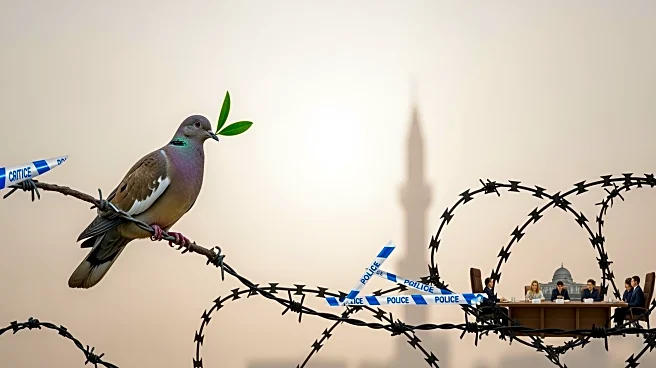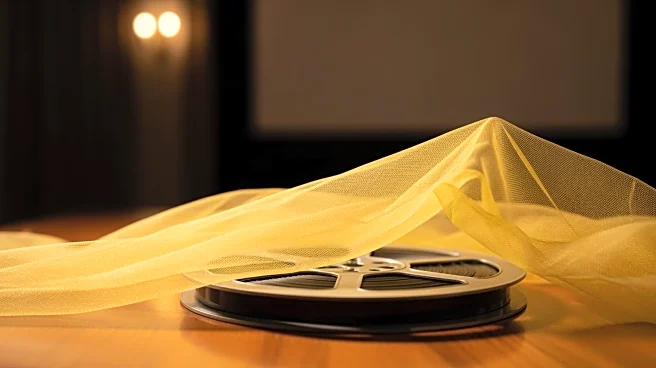What's Happening?
Iranian dissident and journalist Pantea Modiri has expressed that many Iranians trust Israel more than their own government, hoping for foreign intervention to help topple the current regime. During a visit
to Israel, Modiri shared her insights on the ILTV Podcast, emphasizing that Iranians are striving to overthrow the Islamic Republic without resorting to violence. She highlighted the creative and humorous nature of Iranians, which she believes can help break the fear instilled by the regime over the past 40 years. Modiri's visit was part of the Sharaka mission, aimed at fostering dialogue between Iranian and Jewish communities, rooted in shared historical ties. Despite potential repercussions from Iran, Modiri remains committed to her cause, advocating for public diplomacy and storytelling as powerful tools for change.
Why It's Important?
The sentiments expressed by Modiri underscore a significant disconnect between the Iranian populace and their government, highlighting a desire for change and international support. This situation has implications for regional stability and international relations, particularly concerning Israel and Iran. The potential for foreign intervention, while fraught with risks, could alter the geopolitical landscape in the Middle East. Modiri's advocacy for non-violent change and public diplomacy suggests a shift towards grassroots movements and international dialogue as means to address political oppression. The shared history between Iranian and Jewish communities could serve as a foundation for renewed ties and mutual understanding, impacting cultural and diplomatic relations.
What's Next?
The ongoing efforts by Iranian dissidents and activists to foster change without violence may lead to increased international attention and support. The Sharaka mission and similar initiatives could pave the way for more collaborative efforts between Iranian and Jewish communities, potentially influencing public opinion and policy. As Modiri continues her advocacy, the Iranian regime may respond with increased scrutiny or repression, affecting the dynamics of dissent within the country. The broader implications for U.S. foreign policy and its stance on Iran could evolve as these developments unfold, with potential shifts in diplomatic strategies and alliances.
Beyond the Headlines
Modiri's narrative highlights the ethical and cultural dimensions of resistance against authoritarian regimes, emphasizing the power of storytelling and human connection. Her experiences reflect the broader struggle for freedom and human rights, resonating with global movements advocating for democracy and justice. The cultural ties between Iranian and Jewish communities, rooted in historical connections, offer a unique perspective on reconciliation and peace-building efforts. This development may inspire similar initiatives in other regions facing political oppression, showcasing the potential for cultural diplomacy to bridge divides and foster understanding.










